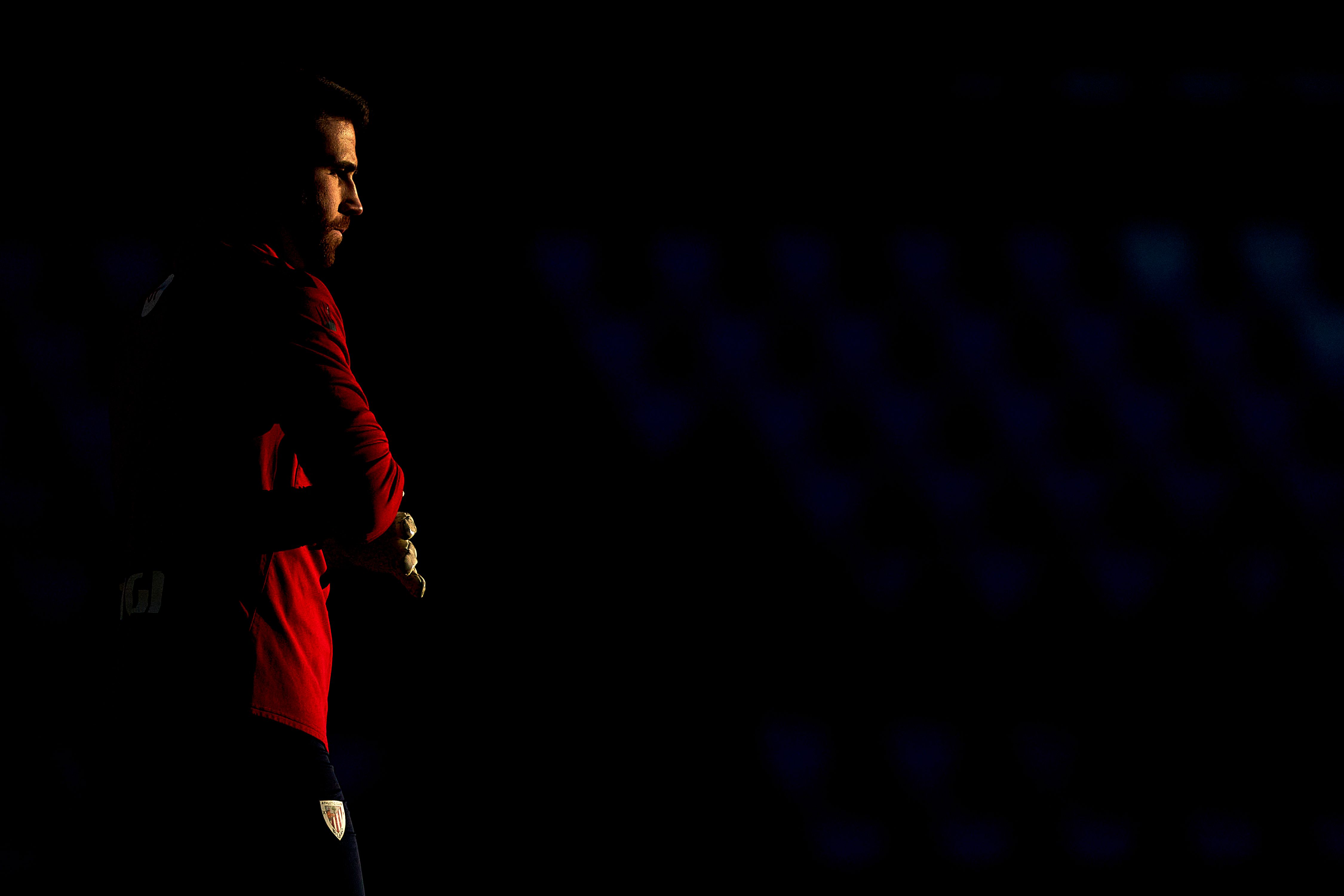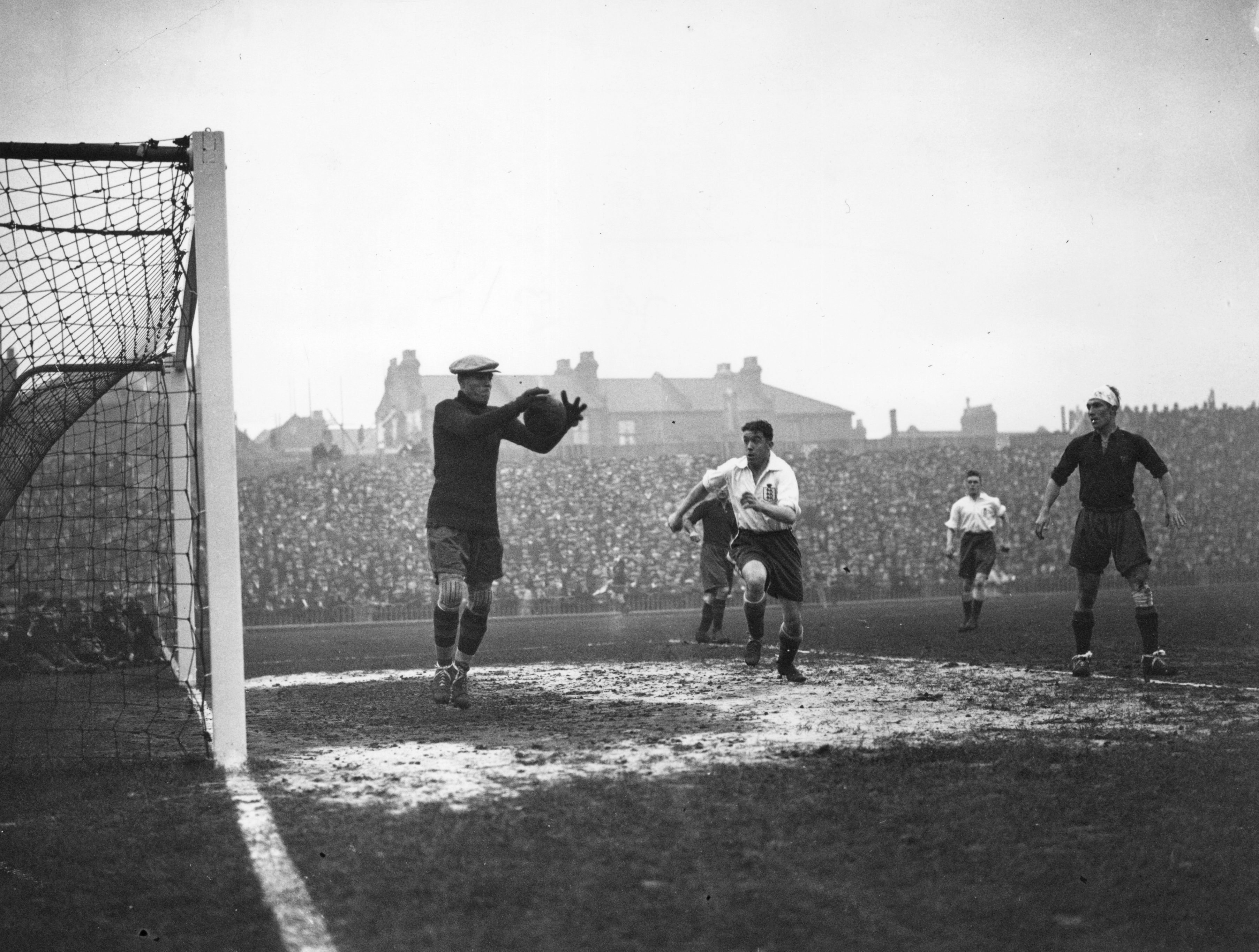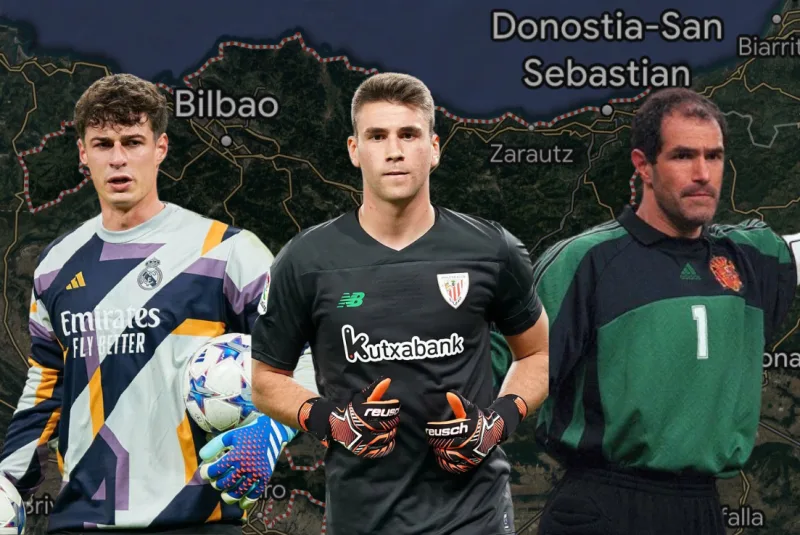Why has the Basque Country produced so many high profile Spanish goalkeepers?
The term “football hotbed” is perhaps an overused one, but there are few places in the world where that description feels more fitting than the Basque Country.
Tucked away in a blustery northern corner of the Iberian Peninsula, the Autonomous Community of the Basque Country, made up of the provinces of Araba, Bizkaia and Gipuzkoa, is home to just 5% of the Spanish population and only 1.4% of all Spanish territory.
However, to say it punches above its weight in footballing terms doesn’t even begin to do justice to the influence this small but fiercely proud region has had on the beautiful game in Spain.
From the very early days, the Basque Country has been one of the great talent factories with the cities of Bilbao, Donostia (San Sebastián) and Irun playing key roles in starting the Spanish football story. Even at the midway point in the 20th Century, it was still Athletic Club de Bilbao who were the most decorated club in the land.
While in the modern age the balance of power has inevitably shifted to the cities of Madrid and Barcelona, both of which have metropolitan areas with more than twice as many people as the Basque Country, the region’s influence on football in Spain, and increasingly beyond, remains great.
Euskadi, as it's known in Basque, is currently home to three clubs in the top tiers of both the male and female leagues, and you can make that four in La Liga if you count Osasuna who also broadly speaking identify as Basque in neighbouring Navarra.
Participation in both male and female football is also far higher in the Basque Country at all levels of the game when compared to the rest of Spain and close to a quarter of all players to have played for the Spanish men’s national team since its inception in 1920 have been Basques.

If there is one position where the Basque Country has historically reigned supreme when it comes to Spanish football, then it’s unquestionably that of goalkeeper.
For more than three decades, the Spain number one jersey was almost exclusively the property of safe pairs of Basque hands. It passed from the legendary Athletic goalkeeper José Ángel Iribar who was first capped in 1964 to Real Sociedad’s Luis Arconada in the late 1970s and early 1980s before ending up with Andoni Zubizarreta who won the last of his 126 caps in 1998.
Even Madrileño Iker Casillas, Spain’s most capped goalkeeper and number one throughout the golden era that saw La Roja conquer the world, comes from a family with Basque roots and spent a period of his early childhood living in Bilbao, although he was very much a product of the Real Madrid system.
As for the post-Casillas era of goalkeepers in Spain, you again have to look north and primarily to Lezama, Athletic Club’s academy, to find many of the best ones.
Unai Simón is the current number one for both Athletic and the national team. Meanwhile Real Sociedad’s Álex Remiro and Kepa Arrizabalaga, currently filling in for the injured Thibaut Courtois at Real Madrid, are also products of Lezama.
They are widely considered the best three Spanish goalkeepers in La Liga right now and depending on the form of David Raya and Robert Sánchez in England, it’s possible that all three could end up going to Euro 2024.
So, just how and why did such a small region become such a hotbed for goalkeeping talent?
There are a number of theories ranging from the genetic to the climatic and plenty in between.

Historically, one important factor was considered to be the popularity of beach football. That’s particularly true in Gipuzkoa where many youngsters make their first football memories on the golden sand of Donostia’s iconic Playa de la Concha, playing in school competitions or just in kickabouts with mates.
That even gave birth to the notion of Basque “beach goalkeepers” whose early confidence and willingness to dive around was aided by the softness of the sand.
Donostia-born Arconada, Spain’s goalkeeper when the country last hosted the World Cup in 1982, is perhaps the best example while despite spending his club career in Bizkaia with Athletic, Iribar was also raised on the shores of Gipuzkoa in the coastal town of Zarautz.
Julen Lopetegui, remarkably one of four managers from Spain’s smallest province to have led Premier League teams in 2023, is another of the best-known former goalkeepers from Gipuzkoa.
The Basque Country’s green terrain and wet but relatively mild climate, has also been cited as a factor in providing soft landings for young goalkeepers, but there’s clearly more to it than just that.
The popularity of a range of different sports is another thing that sets the Basque Country apart from the rest of Spain. Youngsters are encouraged to participate in many different ones before choosing their sporting path and it’s not hard to see how some of the skills gained from traditional Basque sports cross over into the realm of goalkeeping.
The most popular include pelota vasca (pilota in Basque), the name given to a range of sports played on a court with a frontón (wall) that loosely resembles a large squash court. Fast reactions, upper body strength and the ability to use arms and hands are key.
Pelota vasca and football coexist in the formative sporting years of children in the region and even Barcelona-born Ricardo Zamora, the first great Spanish goalkeeper in the 1920s and 30s was a pelota player in his youth.

Athletic’s famous “Basque only” policy and Real Sociedad’s unwavering commitment to locally produced talent that makes up the bulk of a squad that will play Champions League knockout football in the new year, also ensures that a pathway to the first team squad exists for the most talented youngsters.
Early opportunities to play competitive senior football are not hard to come by in the Basque Country with a number of small-town clubs thriving in the second and third tiers of the Spanish football pyramid.
Significantly, the reserve teams of the two big clubs also offer the opportunity for youth prospects to play competitively with Real Sociedad B even reaching the Segunda División in 2020/21 while their C team is this year celebrating a decade in the fourth tier.
Throw into the mix some of the very best academies in the business and elite level coaching with Real Sociedad’s Zubieta every bit as proficient at churning out the talent as Athletic’s Lezama and you have a fantastic environment for young footballers, and particularly goalkeepers, to develop in.








